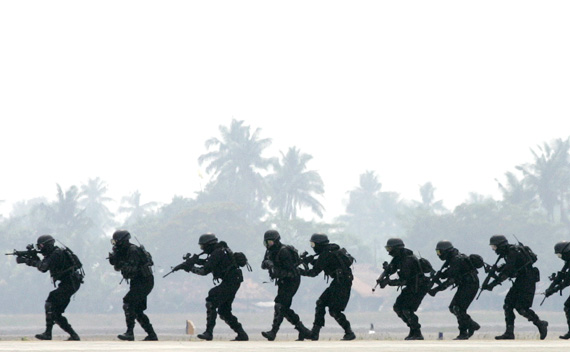Indonesia’s War on Terror
More on:

The news coverage this week over the White House’s decision to restore ties to Kopassus, the Indonesian Special Forces (more on that decision in a later post), has crowded out what should be a point for celebration. In a recent report, the International Crisis Group, widely respected as an authority on terrorism in Indonesia, declared, “The truth is that the jihadi project has failed in Indonesia.”
In other words, the Indonesian authorities have all but won their war on terror. That doesn’t mean there will be no more terrorist attacks – isolated cells and radicalized individuals can still commit acts of deadly violence, and a democratic, relatively poor archipelago with porous borders will always have difficult policing who is coming in and out of the country. But the threat of the early 2000s, of coordinated large-scale attacks like the ones in Bali in 2002 or Jakarta in 2000, and of Islamist recruiting networks dominating the Indonesian school system, seems ever more remote.
There are many reasons for this triumph: President Susilo Bambang Yudhoyono’s use of the bully pulpit; Jemaah Islamiah’s tactical mistakes in some of the targets they chose; a deradicalization program for militants that, if controversial, has had some effect on recidivism. But, in large part, it is because the Indonesian police, and particularly elite units like the U.S.-funded Detachment 88, have made strides that other forces in the region, like the Thai units operating in war-torn southern Thailand, have not. The Indonesian police have infiltrated cells, identified terror networks’ leaders, and found informants willing to rat out Jemaah Islamiah leaders and bomb-makers. The police have also been able to keep the information to themselves long enough to surprise terrorists with raids on their hideouts, and then the police have followed the rule of law enough to avoid their investigations and prosecutions being undermined.
All this has come without much support from the Indonesian armed forces, including Kopassus, even though Kopassus today claims it can be a vital partner in combating terrorism. When restoring ties to the Indonesian Special Forces, then, Washington must remember exactly what it is – or isn’t – getting.
More on:
 Online Store
Online Store
